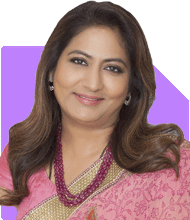I'm 20, Took Morning-After Pill, No Period for 1.5 Months, Negative Test: What Should I Do?
Dr Nandita Palshetkar | Answer |Ask -Follow
Gynaecologist, IVF expert - Answered on Dec 17, 2024
She is a pioneer in ICSI, laser hatching, spindle view, oocyte and embryo freezing, IMSI, in vivo vaginal culture, metabolomics, embryoscope and spindle check technologies.
With over 30 years of experience, Dr Nandita is managing 10 centres across India.
She has written over 100 papers, edited 25 books and given over 1,000 lectures and speeches.
She has also won several prestigious awards, including the Dronacharya Award (2021), the Bharat Gaurav Award at the House of Commons in London (2014) and the Inspiring Gynaecologists of India (2018) to name a few.
Dr Nandita completed her MBBS from Grant Medical College and Sir J J Hospital, Mumbai, and her MD in obstetrics and gynaecology from Mumbai University."... more

I am 20 years old I'm taking pill in the morning after conception but now it's been 1 month and 2 weeks my period is not taken and i had taken pregnancy test also and it's negative
Taken ipill
Not got periods for 1.5 months and pregnancy test negative.
We need to understand i pill is an emergency contraception which contains lenonorgestrel which acts by blocking LH AND FSH hormones, prevent ovary by releasing egg or prevent egg sperm fertilization.
It does not regularize periods. Infact ipill can cause delayed or irregular periods or at times periods can happen as spotting.
Since pregnancy test is negative, I would advise repeat pregnancy test after one week if you dent get periods and then consult your doctor. She will advise you tablets to get periods.
You may like to see similar questions and answers below
Dr Nandita Palshetkar | Answer |Ask -Follow
Gynaecologist, IVF expert - Answered on Jan 02, 2025
Dr Nandita Palshetkar | Answer |Ask -Follow
Gynaecologist, IVF expert - Answered on Jan 22, 2025
Dr Dipankar Dutta |1836 Answers |Ask -Follow
Tech Careers and Skill Development Expert - Answered on Dec 05, 2025
Ulhas Joshi |280 Answers |Ask -Follow
Mutual Fund Expert - Answered on Dec 05, 2025
Dr Dipankar Dutta |1836 Answers |Ask -Follow
Tech Careers and Skill Development Expert - Answered on Dec 04, 2025
Ravi Mittal |676 Answers |Ask -Follow
Dating, Relationships Expert - Answered on Dec 04, 2025
Anu Krishna |1745 Answers |Ask -Follow
Relationships Expert, Mind Coach - Answered on Dec 04, 2025
Anu Krishna |1745 Answers |Ask -Follow
Relationships Expert, Mind Coach - Answered on Dec 04, 2025
Mayank Chandel |2562 Answers |Ask -Follow
IIT-JEE, NEET-UG, SAT, CLAT, CA, CS Exam Expert - Answered on Dec 04, 2025
Mayank Chandel |2562 Answers |Ask -Follow
IIT-JEE, NEET-UG, SAT, CLAT, CA, CS Exam Expert - Answered on Dec 04, 2025
Mayank Chandel |2562 Answers |Ask -Follow
IIT-JEE, NEET-UG, SAT, CLAT, CA, CS Exam Expert - Answered on Dec 04, 2025
Mayank Chandel |2562 Answers |Ask -Follow
IIT-JEE, NEET-UG, SAT, CLAT, CA, CS Exam Expert - Answered on Dec 04, 2025






















